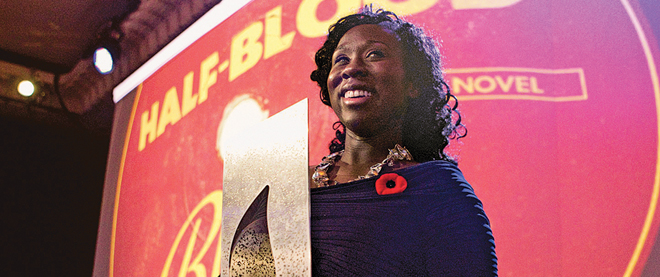Good news, bad news: Nov. 3-10, 2011
Canada is headed in the right direction on climate change, but in the wrong direction on employment
CP/Chris Young
Share
Good news

Not all hot air
As American protesters surrounded the White House last week in opposition to the Keystone oil sands pipeline—a project that would only serve to boost America’s energy security—there’s evidence that Canada is making strides in cutting its overall emissions. The country is about halfway to meeting targets agreed to under the 2009 Copenhagen Accord, notes a report by the International Institute for Sustainable Development. While more could be done, the report said, Canada is heading in the right direction—no matter what the noisy critics south of the border might say.
Niki, Niki nine score
The already crowded race to succeed the late Jack Layton as NDP leader has another entry—Manitoba MP Niki Ashton. The 29-year-old launched her campaign in Montreal in French (one of four languages she speaks fluently), promising to be a voice for youth. With nine declared candidates, the March leadership convention promises to be messy and exhilarating, just like democracy should be. The more the merrier.
Father knows best
In the nature versus nurture debate, there’s plenty of evidence that good parenting leads to healthy children. A study from Concordia University found children whose fathers play an active role raising them have fewer behavioural problems and higher intellectual abilities. But new research suggests fathers also stand to gain. A report from Oregon State University found that becoming a father can curb negative behaviours, including crime and alcohol use in men.
Close encounters
The asteroid 2005 YU55 zipped past Earth on Tuesday—the first giant space rock in a generation to pass so close to Earth (nearer than the moon) and with so much advance notice. It was first spotted six years ago, and its location last week was tracked by radar to within a kilometre, offering some hope that if an asteroid really was on a collision course with Earth, we’d have a fighting chance at stopping it. Meanwhile, the White House finally responded to an Internet petition asking it to come clean on details about contact with extraterrestrials. There has been none. Or so they say.
Bad news

Diminished expectations
Canada got a rude economic awakening last week with the release of October’s employment numbers. The economy lost 54,000 jobs, wiping out all of the gains made in September and pushing the unemployment rate up to 7.3 per cent. With signs of slowing economic growth, on Tuesday Finance Minister Jim Flaherty pushed back the timetable for balancing the budget to 2015. He also cut back planned increases in employment insurance premiums and extended a work sharing program—wise moves, but ones that warn of more tough times ahead.
Ready to blow
United Nations weapons inspectors released a report this week showing new evidence that Iran may be developing nuclear weapons. The report adds fuel to an already tense debate between Israel and Western allies over how to handle Tehran. Israeli President Shimon Peres said last week an attack on Iran was becoming “more and more likely,” while Russia’s foreign minister, Sergey Lavrov, warned Israel that any military action would be a “very serious mistake fraught with unpredictable consequences.” True. But so would standing around watching the rogue state build a bomb.
More Mountie misdeeds
The public face of the RCMP in British Columbia, Cpl. Catherine Galliford has gone public with allegations her supervisors sexually harassed her for the past 20 years. Galliford, one of the force’s media spokeswomen, has filed a 115-page complaint detailing the advances, which are said to include a supervisor with the Missing Women’s Task Force exposing himself to her. Sadly, it’s hardly the first time officers have complained about the force’s toxic work environment. Canadians may well ask: who is policing the cops?
Sweet temptation
A U.S. study found that students in schools where the sale of sugary drinks was limited consumed just as many of the drinks as students in schools without restrictions. As researchers noted, if kids can’t get them at school, they’ll just buy them at convenience stores. Not surprisingly, that’s where competition to sell sweet drinks is fiercer than ever. This week food giant Kraft said it plans to sell a line of so-called energy drinks, a market worth $6 billion and growing.